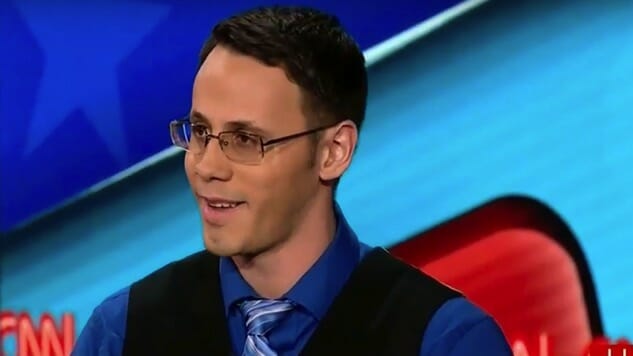Millennial, Progressive Candidate Sam Ronan’s Inspiring Run for DNC Chair

He’s a 27-year-old veteran with little experience in DC. Nevertheless, Sam Ronan has become a dark horse candidate in the race for DNC Chair due to his bold, unapologetic progressivism. Thus far, he is the only candidate to openly pledge to get corporate money out of Democratic Party politics and the only one running to acknowledge (and stand by his acknowledgment) the fact that the DNC assisted Hillary Clinton in the primary. One thing is becoming clear: Whatever the result of Saturday’s election, Ronan’s status as a rising star of the left is evidence that, moving forward, the party is going to have to listen to his message.
When he first answers the phone, he sounds distracted. “Sorry,” he explains. “I just got an email related to the debate I’m doing tonight,” referring to the CNN DNC Chair candidate debate. Although he’s about to go on national television, Ronan seems to be in good spirits and calm—understandable given the fact that before he was pursuing politics, he was an enlisted man in the U.S. Air Force.
“You’re kind of dark horse in this race,” I joke.
-

-

-

-

-

-

-

-

-

-

-

-

-

-

-

-

-

-

-

-

-

-

-

-

-

-

-

-

-

-

-

-

-

-

-

-

-

-

-

-








































